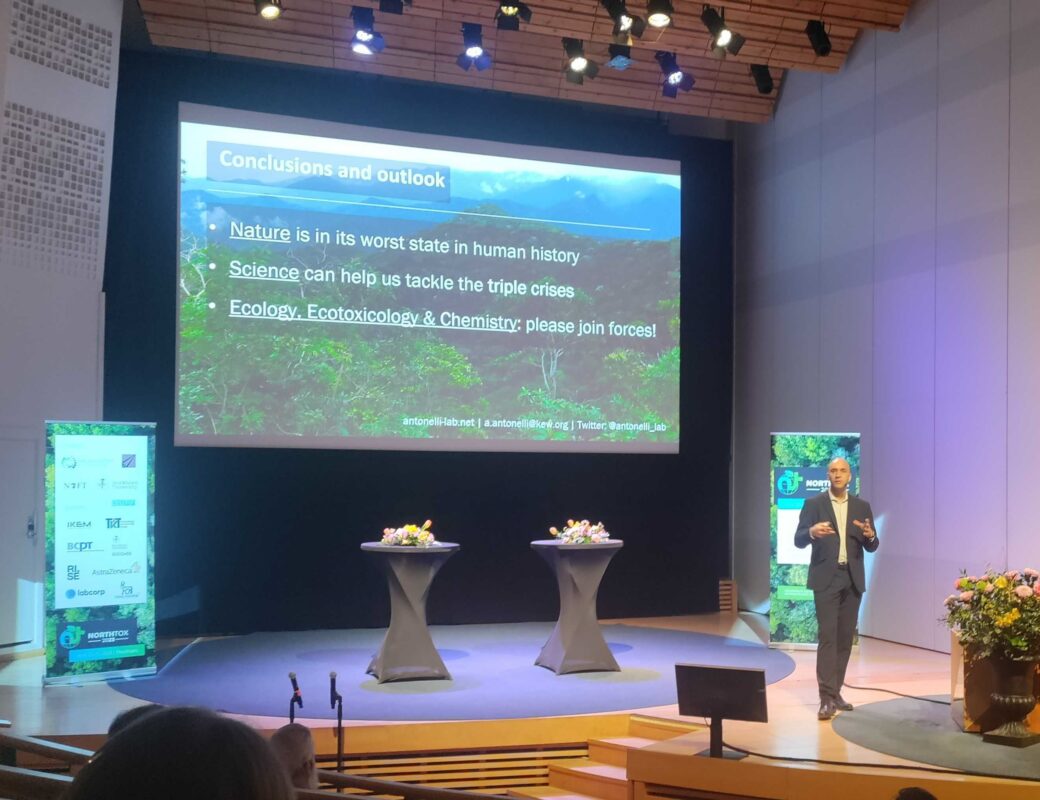This April, the first–ever conference for Nordic toxicologists – NorthTox was held to create and strengthen the toxicology community and encourage interactions and collaborations between people with similar research aims. The conference focused on the current situation and challenges of ecotoxicology while introducing new strategies for dealing with the issues to create a sustainable society.
Helen: The kickoff of the conference was a memorable presentation on biodiversity given by Alexandre Antonelli who left the crowd on a hopeful note that the rapid loss in the abundance of species can be slowed down and maybe even reversed. As toxicity is a wide field, the topics covered during the NorthTox conference were diverse. As someone who is not actively thinking about how my research is affecting the everyday life of other people, it was interesting to hear about the regulations (and their weaknesses) in force right now and how the toxicity assessment is transitioning to earlier stages where the chemical is designed. Multiple speakers emphasized the importance of harvesting the computational power available to use the existing data and speed up the risk assessment of chemicals. The conference ended with a set of speed talks, that mostly covered different approaches to experimental toxicity and was a perfect ending to illustrate the complexity of the field and introduce fresh ideas to tackle these issues.
Yvonne: NorthTox2023 was my very first scientific conference, and I was very happy to be able to attend. Looking back, it was especially interesting for me as a newcomer in this field to see representatives from different agencies such as the Swedish Society of Toxicology or the Swedish Chemicals Agency (KEMI). Being able to hear these people on stage and see them talk about the challenges and opportunities of recent developments in the field helped me to better understand the fundamental issues surrounding toxic substances and their analysis in the environment. After all, it’s one thing to just read about the issues, but experiencing them leaves a different impression. A quote from Urban Boije af Gennäs, a national expert from KEMI, described the current situation of EU directives as “the blind leading the blind,” suggesting that although many people are working on toxicological issues, there are many questions that have not yet been answered and even more questions that we do not yet know about, which underscores the importance of research in this area. Another presentation that stuck in my mind was by Anna Beronius of the Karolinska Institute in Stockholm. Beronius spoke about the challenges of monitoring endocrine-disrupting chemicals, as monitoring effects on animals is very complex. In the final session of the second day, several bright minds presented their research that addresses the field of toxicological analysis. These methods ranged from impressive visuals using immunofluorescence imaging, and lab on a chip, to monitoring epigenetic effects and using machine learning as a tool in the form of QSAR modelling. Overall, NorthTox2023 left me feeling curious to further explore the interesting and challenging topics in toxicology.


